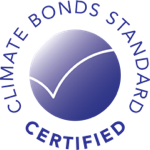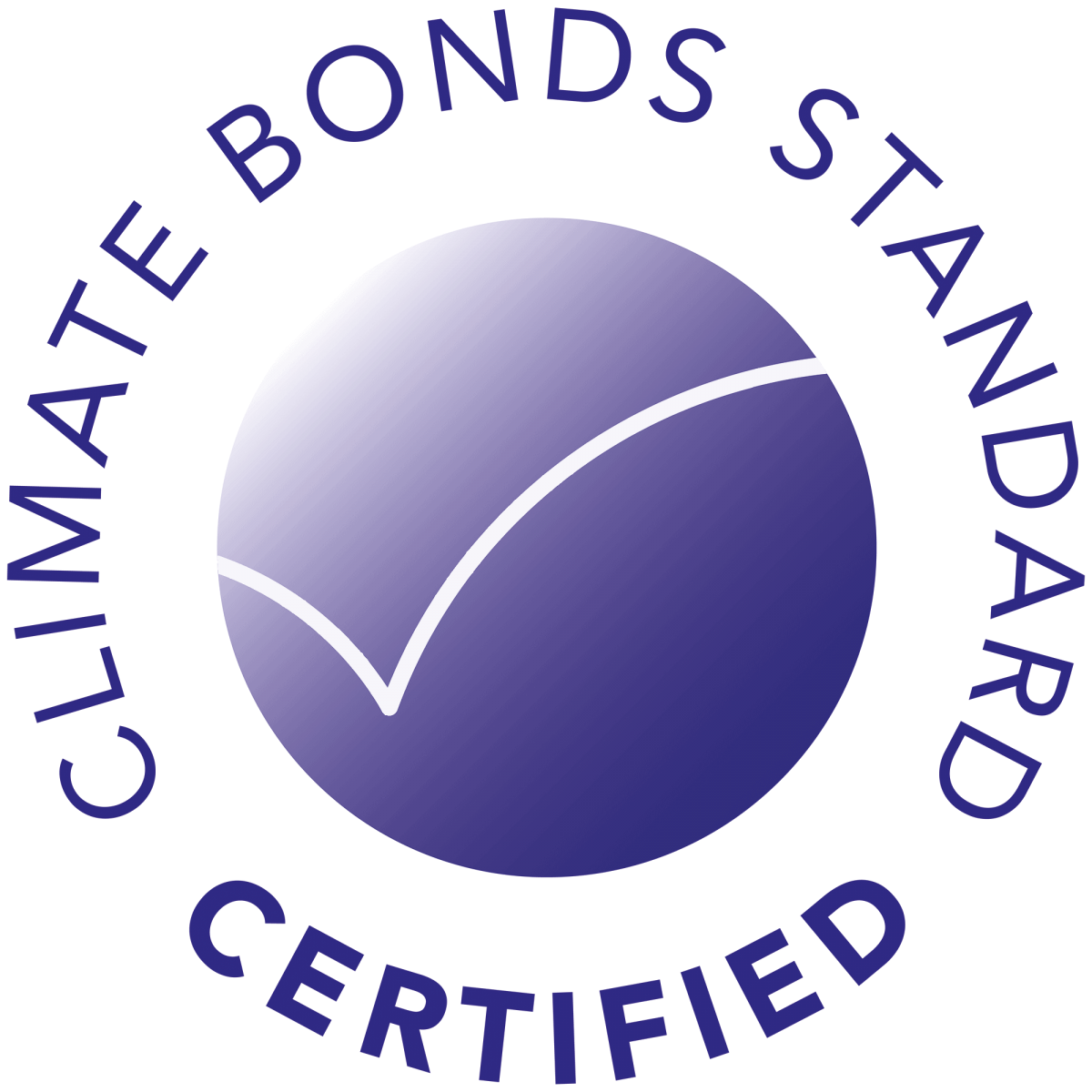Resources:
Timeline of Development:
May 2023: TWG Launch
Sept 2023: IWG Launch
Nov 2023: Public Consultation Launch
Dec - Feb 2024: Public Consultation Period
Mar 2024: Criteria available for certification
Certifications
If you are interested in getting Certified please visit. To see the whole list Climate Bonds, visit our Database of Certified Bonds
Criteria: The Electrical Utilities Criteria will set the science-based requirements that Electrical Utilities must meet to be eligible for inclusion for a Certified Climate Instrument / Entity.
The Electrical Utilities Criteria will assess both Mitigation Requirements and Adaptation & Resilience Requirements.
Financial instruments (bonds and loans and other debt instruments like sustainability-linked debt) linked to these eligible entities, assets, and activities will be aligned with the Paris Agreement and the goal of keeping global temperature rises to no more than 1.5°C above pre-industrial levels.
Why develop eligibility Criteria for Electricity Utilities related low carbon investments?
The electricity sector is today the largest source of global Green House Gases (GHG) emissions and the share of electricity in total final energy is expected to increase dramatically in the future, to more than 50% in 2050, as it adopts its new important role in deeply decarbonising the entire energy systems. As a result, electricity utilities will pay a critical role in decarbonising the global energy systems, as countries and companies adopt net-zero targets.
Criteria are needed to reduce electricity emission related to achieve net zero emissions. Advanced economies should reach it in 2035 while emerging economies will have their threshold in 2040. Criteria also aims the goal of keeping global temperature rises to no more than 1.5ºC above pre-industrial levels and support the reduction of unabated fossil fuels and the growth of renewables generation capacity in the electricity system.
Renewable energy capacity, especially wind and solar, must increase from 2,600 TWh in 2021 to 3,500 TWh in 2050. At the current rate of investment, this will take 90 years, but the transformation needs to happen in 30 years, making the Electrical Utilities Criteria essential.
Criteria can support the critical upcoming financial decisions for electricity utilities, providing a clear path to support the intensive decarbonisation path necessary to meet the climate goals set by the Paris Agreement in 2015.
Electrical Utilities Technical and Industry Working Groups (TWG and IWG)
To create the Electrical Utilities Criteria, we convened a Technical Working Group (TWG) and an Industry Working Group (IWG) with representatives from investors, public entities, research institutes and international policy bodies from around the world.
Electrical Utilities Technical Working Group Members
 |
 |
 |
||
|
Ana Diaz Technical Lead, Climate Bonds Initiative |
Paco Moreno Energy Analyst Climate Bonds Initiative |
Cristóbal Budnevich Portales Policy Officer and Data Analyst (TPI) |
Wu Di Senior Power Sector Analyst at the Institute of Energy, Peking University |
Catalin Dragostin Director Energy Serv Vice-President Excorom |
 |
 |
 |
||
|
Ryan Foelske Manager on RMI’s Utility Transition Finance Team |
Run Zhang Agora Energiewende |
Tom Luff Energy Strategy and Policy Expert Energy System Catapult |
Steve Pye Associate Professor of Energy Systems UCL |
Shuling Rao Senior Researcher The Institute of Finance and Sustainability |
 |
 |
|||
|
Kae Takase Renewable Energy Institute |
Andy Ross Senior Manager ACT Initiative |


